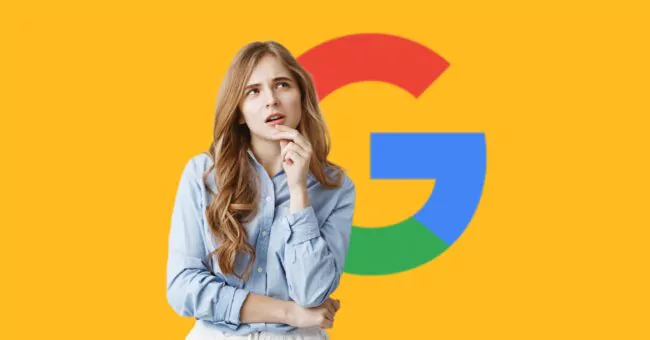In the ever-evolving world of digital advertising, brands, and businesses are continually looking for the most effective ways to reach their target audience. With so many options available, choosing the right advertising platform is crucial for success. Among the many digital advertising platforms, two giants dominate the scene: Facebook Ads and Google Ads.
As we approach 2025, the advertising landscape continues to shift, offering both challenges and opportunities for marketers. This blog will dive deep into the advertising trends of 2025, comparing Facebook Ads and Google Ads to help you determine which platform offers the best value for your marketing strategy.
1. The Rise of AI and Automation in Advertising
Both Facebook and Google have incorporated artificial intelligence (AI) and automation into their advertising systems. These innovations help advertisers save time, optimize campaigns, and improve targeting.
Google Ads has made significant strides in using AI for bid adjustments, keyword targeting, and even ad copy creation. With Google’s deep data-driven insights, it can automatically adjust your bidding strategy based on factors like user behavior, device type, and location. The platform’s Smart Bidding feature allows advertisers to set goals, and Google optimizes campaigns towards those objectives.
On the other hand, Facebook Ads uses automation to enhance ad delivery. The platform’s Automated Ads feature can adapt to different objectives, automatically testing different ad creatives, placements, and audiences. Facebook’s machine learning algorithm continuously learns and improves targeting over time, allowing advertisers to focus on high-performing ads.
What Does This Mean for Marketers?
If you want to streamline your advertising process with minimal intervention, both platforms offer automation tools that make managing campaigns easier. However, the choice between Facebook Ads and Google Ads depends largely on your goals and audience.
If you’re looking to reach potential customers based on their intent (e.g., searching for a product), Google Ads may be the better option. But if your focus is on brand awareness and engaging potential customers based on interests and demographics, Facebook Ads could be more effective.
2. Audience Targeting: Facebook Ads vs. Google Ads
The ability to target specific audiences is one of the main reasons digital advertising has become so effective. Facebook and Google offer different targeting options, and understanding these differences is key to creating a successful campaign.
Facebook Ads excels in audience targeting based on demographics, interests, behaviors, and connections. With over 2.8 billion active users, Facebook’s detailed targeting options allow advertisers to segment their audience in highly specific ways. Additionally, Facebook allows you to target users across platforms like Instagram, Messenger, and the Audience Network.
Google Ads, on the other hand, is highly effective when targeting users based on their search intent. Google’s search engine collects vast amounts of data on what people are actively looking for, and this allows advertisers to reach users who are searching for products or services similar to what they offer. Google’s display network also offers targeting through interest-based categories and remarketing ads, though it’s not as detailed as Facebook’s demographic options.
Timing Is Everything: Mastering the Social Media Posting Calendar for 2025
Which Platform Offers Better Targeting?
If you’re focused on targeting people based on interests, Facebook Ads provides more granular targeting options. However, if you’re looking for users who have a clear intent to purchase, Google Ads can be a powerful choice.
3. Advertising Formats: Which Platform Excels?
Both Facebook and Google offer various ad formats, each with its own set of benefits. As we head into 2025, these platforms continue to evolve their offerings.
Facebook Ads provides several ad formats including:
- Carousel Ads: Multiple images or videos in a single ad.
- Video Ads: Videos that appear in users’ feeds or stories.
- Slideshow Ads: A lightweight video format that uses static images.
- Collection Ads: Designed for e-commerce, showcasing multiple products in one ad.
These formats are designed to be engaging and are ideal for brand storytelling. Facebook is also focusing on improving AR (Augmented Reality) ads, which could be a game-changer in the future of digital advertising.
Google Ads, in comparison, offers:
- Search Ads: Text ads shown on search results pages.
- Display Ads: Banner ads shown across the Google Display Network.
- Video Ads: Ads on YouTube.
- Shopping Ads: Visual ads that appear on Google Shopping.
Google’s ad formats are geared towards driving direct responses. If you’re looking for immediate sales, Google’s search ads and shopping ads are hard to beat. However, if you’re focused on building engagement and creating brand awareness, Facebook’s variety of formats might be more effective.
4. Cost-Effectiveness: Facebook Ads vs. Google Ads
One of the most important factors in any advertising decision is budget. Both Facebook and Google offer cost-effective advertising options, but they work differently.
Facebook Ads tends to have a lower cost-per-click (CPC) compared to Google Ads. The platform’s auction system allows advertisers to set their own budget and bid for ad placements, giving you control over how much you spend. Since Facebook’s ads are often shown to users who are not actively searching for your product, conversion rates might be lower, but the lower CPC can make up for this.
Google Ads, however, is often considered more expensive, especially for highly competitive keywords. Since Google Ads targets people with high intent to purchase, the cost-per-click can be higher. However, the higher CPC often results in higher conversion rates, making it a more effective choice for driving sales.
Which Platform Offers Better ROI?
If you’re focused on lowering costs while still reaching a broad audience, Facebook Ads is often the more cost-effective choice. However, if your primary goal is sales conversion, Google Ads may justify its higher costs with a higher return on investment (ROI).
5. The Role of Mobile in Advertising
As mobile usage continues to rise, both Facebook and Google are heavily investing in mobile-friendly advertising options. In fact, mobile advertising is expected to make up a significant portion of all digital advertising spend by 2025.
Both Facebook and Google have optimized their platforms for mobile. Facebook Ads are particularly effective on mobile devices, where users spend a significant amount of time scrolling through their feeds. Google Ads, particularly with its search ads, also perform well on mobile, especially for users who are searching for local products or services.
6. Conclusion: Which Is Superior?
The question of whether Facebook Ads or Google Ads is superior largely depends on your business goals, target audience, and advertising budget. If you’re looking to create engaging brand awareness and target people based on their interests, Facebook Ads may be the way to go. However, if your goal is to target users with high intent and drive direct conversions, Google Ads might be more effective.
For businesses looking to thrive in the ever-changing world of digital marketing, it’s important to stay ahead of the curve and adjust strategies as trends evolve. As we move into 2025, a combination of both platforms may be the key to a successful advertising campaign. With AI-powered optimization and advanced targeting features, both platforms offer unique advantages that can help your business grow.
For those looking to enhance their online presence, partnering with experts in digital marketing is crucial. You can hire a digital marketer to guide you through the complexities of Facebook Ads and Google Ads campaigns. Whether you need a web developer, designer, or even accounting services, CompleteGurus offers a wide range of professional services to help you scale your business online.
To learn more about how we can help your business succeed, visit CompleteGurus today.

I am Ashutosh – a seasoned digital marketer, bringing digital transformation to businesses, complementing businesses’ growth via generating qualified leads, drive site inbound traffic via organic and inorganic approach, & build their brands through useful, well-designed marketing strategies and Marketing Automation implementation via Chat GPT, HubSpot & Zoho.







